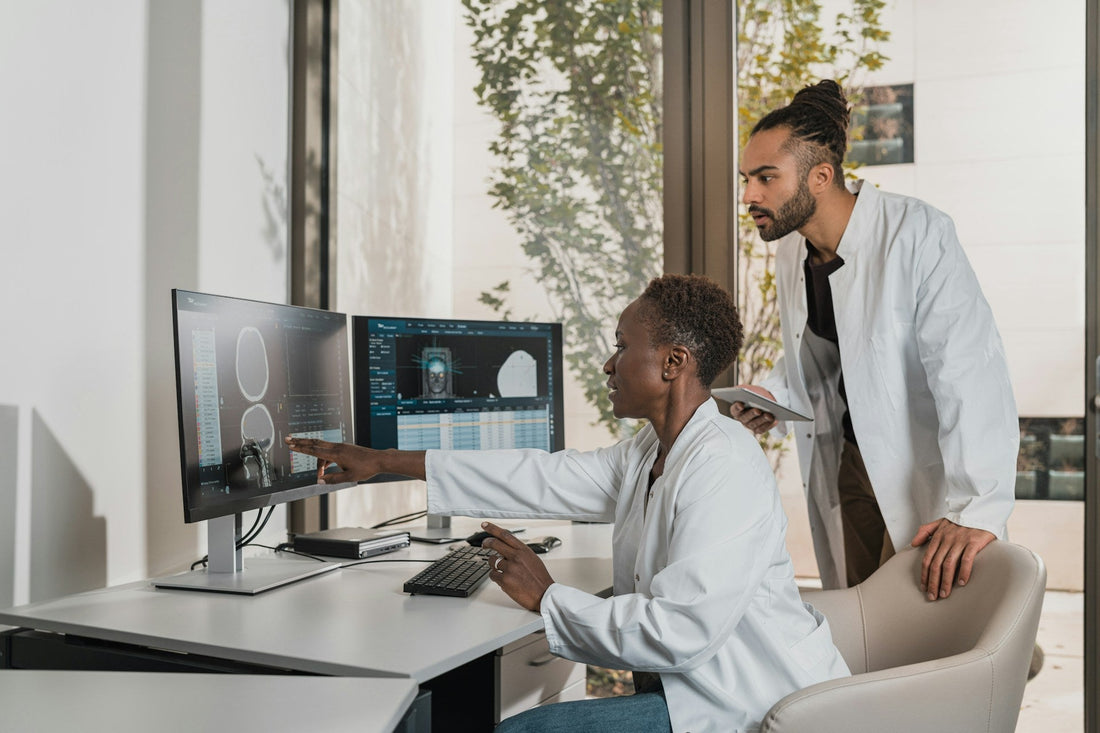
How Long Do Hemorrhoids Normally Last? Understanding Duration and Recovery
Share
Hemorrhoids are a common issue that many people encounter at some point in their lives. Understanding how long they typically last can help alleviate some of the anxiety and discomfort associated with this condition. In many cases, hemorrhoids may resolve on their own within a few days, but some can linger for weeks depending on their severity and the individual’s circumstances.
If you are experiencing symptoms such as pain, itching, or bleeding, it is essential to know that effective options are available. Hem Healer offers a 100% natural blend of botanical herbs specifically designed to reduce pain, swelling, and bleeding associated with hemorrhoids. This supplement can be an excellent choice to help shorten the duration and severity of your symptoms.
Being informed about the healing process can make a significant difference in your comfort level. You’ll find that incorporating natural remedies like Hem Healer into your routine may not only support your recovery but also contribute to overall digestive health.
Understanding Hemorrhoids
Hemorrhoids are swollen veins located in the anal area and rectum, which can lead to discomfort and pain. Understanding the types and causes is crucial for effective management and treatment.
Types of Hemorrhoids
There are two main types of hemorrhoids: internal and external.
-
Internal hemorrhoids occur inside the rectum. They are usually painless but can cause bleeding during bowel movements. The lack of pain is due to the absence of pain-sensitive nerves in this area.
-
External hemorrhoids develop under the skin around the anus. They often come with discomfort, pain, and itching due to the presence of numerous nerve endings. If a blood clot forms, the pain can become severe.
Identifying which type you have can help determine the best approach for relief. Options include lifestyle changes and natural remedies like Hem Healer, a 100% natural supplement designed to alleviate pain and reduce swelling.
Causes of Hemorrhoids
Hemorrhoids can develop from a variety of factors. Common causes include:
- Straining during bowel movements: This can occur due to constipation or prolonged sitting on the toilet.
- Pregnancy: The increased pressure from the growing uterus can lead to swollen veins.
- Obesity: Excess body weight can put additional pressure on the pelvic area.
- Age: As you age, the tissues supporting the veins can weaken and stretch.
Lifestyle adjustments, such as a high-fiber diet and increased water intake, can help manage symptoms. Supplements like Hem Healer may also support the reduction of pain and bleeding, promoting a quicker recovery from hemorrhoids.
Symptoms and Diagnosis
Recognizing the symptoms of hemorrhoids is crucial for effective management. You may experience discomfort, pain, and other signs that signal the need for proper diagnosis and treatment.
Common Symptoms
Hemorrhoids can manifest in various ways, and understanding these symptoms can guide you on the necessary steps to take. The most prevalent symptoms include:
- Pain and Discomfort: You may feel pain, especially during bowel movements.
- Itching: An irritating itch around the anal region can be quite bothersome.
- Swelling: You might notice swelling or a lump near the anus.
- Rectal Bleeding: Bright red blood may appear in your stool or on toilet paper.
- Prolapse: In more severe cases, hemorrhoids can protrude outside the anus.
If you're experiencing symptoms like these, it's essential to monitor their duration and severity. Over time, effective pain management may help alleviate your discomfort. Supplementation with Hem Healer, a 100% natural blend of botanical herbs, can support reduction in pain and swelling.
When to See a Doctor
It’s important to know when professional assistance is necessary. You should consider scheduling a consultation if you experience:
- Persistent Bleeding: Blood in your stool that doesn’t resolve after a few days may indicate a more serious issue.
- Severe Pain: Pain that limits your daily activities or worsens over time warrants immediate attention.
- Thrombosis Symptoms: If you notice a hard lump around your anus that is intensely painful, it could indicate thrombosed hemorrhoids.
Consulting a healthcare professional is advisable to rule out other conditions and receive an accurate diagnosis. Using Hem Healer can help manage your symptoms, but a doctor can provide a comprehensive treatment plan tailored to your situation. Remember, addressing symptoms early can lead to more effective treatment outcomes.
Treatment Options
When managing hemorrhoids, various treatment options exist, ranging from at-home remedies to more involved medical procedures. Selecting the appropriate treatment depends on the severity of symptoms and personal preference.
Home Remedies
Home treatments can effectively alleviate mild hemorrhoid symptoms. Increasing dietary fiber intake is crucial; you can use a fiber supplement or consume high-fiber foods such as fruits, vegetables, and whole grains.
Sitz baths are another useful remedy. Soaking in warm water for 10–15 minutes several times a day can help ease discomfort and reduce swelling.
Maintaining proper hydration is essential as well. Staying well-hydrated can soften stools and minimize straining during bowel movements.
You might also consider using over-the-counter topical treatments, which can provide temporary relief from itching and inflammation. Lastly, products like Hem Healer can support your recovery, as it's a 100% natural blend of botanical herbs designed to reduce pain and swelling.
Medical Procedures
If home remedies fail, medical procedures may be necessary. Rubber band ligation is a common option where a small band is placed around the base of the hemorrhoid to cut off blood supply, leading to its eventual shrinkage.
Sclerotherapy involves injecting a chemical solution into the hemorrhoid to shrink it. Coagulation techniques such as infrared coagulation use heat to achieve similar results.
These minimally invasive procedures typically require little recovery time and can significantly improve symptoms. Each treatment option can be discussed with your healthcare provider to determine the best course of action based on your situation.
Surgery
For severe or recurring hemorrhoids, surgical intervention may be warranted. Hemorrhoidectomy is the most definitive surgical treatment, where the hemorrhoids are surgically removed.
Thrombectomy is another option specifically for painful blood clots within external hemorrhoids. This procedure involves making a small incision to remove the clot.
Hemorrhoid stapling is another method that can reduce the likelihood of recurrence by repositioning the hemorrhoids. If you find yourself needing surgery, consult with your doctor about which option would be most effective for you.
Lifestyle and Preventive Measures
Managing hemorrhoids effectively requires a comprehensive approach that includes dietary habits and regular exercise. These lifestyle modifications can significantly reduce the risk of developing hemorrhoids and alleviate symptoms.
Dietary Considerations
Adopting a high-fiber diet is crucial for preventing and managing hemorrhoids. Foods rich in fiber, such as fruits, vegetables, whole grains, and legumes, help soften stool and promote regular bowel movements.
Aim for a daily intake of 25-30 grams of fiber. Incorporate foods like berries, apples, bananas, and leafy greens. Drinking adequate fluids is equally important, as hydration helps ease bowel movements.
Additionally, consider making gradual dietary changes to avoid gastrointestinal discomfort. Increasing fiber too quickly can lead to gas and bloating. Including a supplement such as Hem Healer can be beneficial as it combines natural botanical herbs to improve your symptoms while also promoting digestive health.
Exercise and Activity Levels
Regular physical activity plays a vital role in maintaining healthy bowel function. Engaging in moderate exercise, such as walking, swimming, or cycling, can stimulate digestion and decrease pressure on the veins in your lower body.
Aim for at least 30 minutes of exercise most days of the week. Incorporating pelvic floor exercises can also strengthen surrounding muscles and provide relief.
Staying active not only helps prevent hemorrhoids but also combats itchiness and discomfort associated with existing conditions. Remember to listen to your body; if you experience pain, consult a healthcare professional. By making these lifestyle changes, you can substantially reduce the duration and severity of hemorrhoids.
Understanding Risk Factors and Complications
Hemorrhoids can develop due to various risk factors and may lead to complications. Understanding these can help you manage your condition more effectively.
Potential Complications
While hemorrhoids are generally not life-threatening, they can lead to complications if left untreated. Straining during bowel movements often exacerbates symptoms and may cause the hemorrhoids to worsen. Chronic constipation and obesity are significant risk factors that can contribute to the recurrence of hemorrhoids, increasing discomfort over time.
Pregnancy also poses risks as the weight of the baby exerts pressure on the anal region. This pressure can lead to anal pain and discomfort. Additionally, engaging in anal intercourse can further stress the area, increasing the likelihood of developing complications like anal fissures.
To alleviate pain and swelling, consider using Hem Healer, which is specifically designed to reduce severity and duration of hemorrhoids using a natural blend of botanical herbs. Making lifestyle changes to manage bowel habits can also minimize complications and the risk of recurrence.

